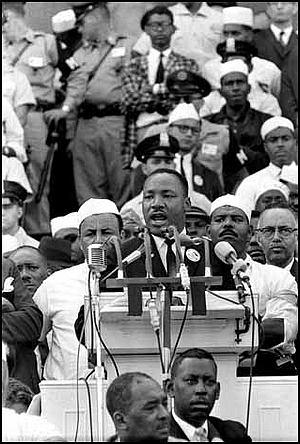
Canada Line construction drives entrepreneur to death's door
February 6, 2009 in Opinion
‘Pro-business’ provincial government refuses to provide just compensation
Geoff Olson, Vancouver Courier
Published: Friday, February 06, 2009
For many Vancouver retailers, the Canada Line might as well have been a neutron bomb. Stores were left standing during construction, but customers vapourized. As I wrote last week, Mark Kenna and Alex Barker experienced the fallout firsthand from the transit project, losing control of their retail gift business Obsessions. The company is now filing for bankruptcy.
“We’ve struggled with debt and interest we normally wouldn’t have had in the course of this business because of the Canada Line, that’s stayed with us there all these years, and its been in the there behind us, dragging us down and down and down,” Alex Barker said in an interview. Obsessions’ three remaining stores have closed as a result of the mounting costs associated with their Yaletown location, and the couple are struggling to keep their apartment on English Bay.
The refusal of the B.C. government to compensate merchants along the Canada Line is something of a provincial mystery. Not so much a whodunit as a why-won’t-they. The mystery is compounded by the B.C. government’s recent offer to Tsawwassen homeowners to buy up their homes in the wake of the town’s power line debacle. Go figure: the reported health risks from high-tension wires rest on hotly debated statistics, yet the Canada Line’s ongoing damage to Vancouver retail outlets have been in plain sight for years.
As new immigrants to Canada 12 years ago, we had nothing,” Barker elaborated in an email. “No past business record, no credit history and no credibility. We earned all of that in spades over the following eight years. Then Canada Line stripped us of all of it.” At its height, the prize-winning Obsessions had 34 employees. “For eight years we built this wonderful business, and we had wonderful people.”
For Barker, the price has been higher than a trashed credit rating. One day last fall, a perfect storm of bad breaks and worse news pushed him over the edge. He and his partner had been to Royal Bank trying to negotiate a rescue package to refinance their business and pay off existing debts. Their loan was turned down, and the same day the couple learned the sale of their Denman street location had been turned down. Barker came home ” devastated and worried sick.” He drank a mickey of vodka, and took some of his partners’ sleeping and anti-anxiety pills. Kenna called for an ambulance, and doctors revived Barker at St. Paul’s hospital. “It was a wakeup call for me to stop the madness,” the businessman says in retrospect. “I wouldn’t say my home and business isn’t worth it, of course it is, but to let the government have taken me to that point…”
Barker says they have received virtually no help from Canada Line representatives or local politicians. “The government suddenly takes it away from you and you have that feeling you are totally powerless to do anything about it. I petitioned Lorne Mayencourt, petitioned Hedy Fry, Tim Stevenson, I had meetings with them all–dead end, dead end, dead end. It was absolutely crushing.”
Today Barker appears healthy and centred. Kenna is the one struggling for the right words to describe how he’s dealing with the epic dimensions of their years-long struggle. “I suspect again that this whole experience will offer me wisdom, strength for the next phase of my life. I am a very positive person and love the excitement of starting something or inspiring someone else through my own life lessons. I try each day to make sure I put a little time aside for myself to relax and reflect and focus on what I need to do the next day to keep me moving forward.”
He struggles with what’s been “taken away from us” by the Canada Line and the B.C. government. “I do believe that justice will be served. I do not care so much about the money, but I do care that they should be held responsible and accountable for what they did… it’s not right, it was cruel, total disregard and disrespect for our rights and principle and basically morally unjust. I still have a hard time thinking that this travesty happened here, in Vancouver, in British Columbia…. for God’s sake, this is Canada.”
Theirs is only one story of transit line hardship, Kenna adds. “Sixty or 70 stores have now closed… there are other people facing even more hardship than us.”
The pair are now looking for employment of any kind in Vancouver. It’s apparent to me these are two responsible, hard-working entrepreneurs, who had the misfortune to have a business in the way of a transit megaproject. Two assets to the local retail community, Barker and Kenna got shafted by the provincial government, which still has the unmitigated gall to present itself as the champions of small business in B.C.
Compensation is long, long overdue for merchants along the Canada Line.
posted by Cameron Ward
Police investigating police
January 24, 2009 in Opinion
In British Columbia, police still investigate themselves in cases where there may be suggestions of wrongdoing. Despite the obvious conflicts of interest inherent in such a system, our politicians have done nothing to address the problem. As a result, public confidence in the criminal justice system is waning and costs are rising.
Take the Robert Dziekanski case, for example. After the confused Polish immigrant arrived at Vancouver International Airport on October 13, 2007, he was confronted by four uniformed RCMP officers. He died moments later. In the initial stages of the RCMP investigation of the fatality, spokesperson Pierre Lemaitre misled the public about what had happened. When a citizen delivered a videotape of the incident to the RCMP investigators, they initially refused to return a copy to him. After he launched a lawsuit for its return, it finally became public:
The videotape clearly contradicted the RCMP’s description of the incident and, to any objective observer, showed that one or more of the officers had used excessive force when they shocked Mr. Dziekanski with 50,000 volts of TASER electricity before attempting to reason with him.
The RCMP investigation of itself, and the ensuing deliberations by Crown Counsel as to whether any charges were warranted, lasted nearly a year. Predictably, no charges were laid.
To attempt to quell the public uproar over the shocking incident, a public inquiry was launched. One can only guess how much the inquiry will cost BC taxpayers, but it surely must be in the millions of dollars. At the second phase of the inquiry, which commenced Monday, no fewer than 23 lawyers were in attendance, most being paid from the public purse. If we conservatively estimate that their collective meters are running at $6,000 per hour, assume that the inquiry will last six months, add an equal number of hours for out of court preparation, well, you can do the math…
All this cost might have been avoided, and the criminal justice system and police would appear much more respectable, if the fatal incident had been investigated by an independent body with the authority to lay charges.
Sometimes a single citizen can show more common sense in a letter to the editor than can a roomful of lawyers. Here’s a copy of a letter from the January 19, 2009 edition of Vancouver Province newspaper:
“Having viewed the video of the police Tasering of Robert Dziekanski numerous times on TV and on YouTube, as well as having followed the media reporting of the incident continuously, I must say that there are eight items that stand clear in my mind:
1. Mr. Dziekanski had endured a very long flight to arrive at Vancouver airport only to suffer a much longer delay (in terms of stress, not time) in the customs area. No one spoke his language and apparently he barely understood English, yet when communicated to by hand signals and gestures he complied immediately and without fail.
2. When Mr. Dziekanski became understandably irritated, airport security, rather than trying to assist him, merely stood by and watched. In fact, they moved toward him then retreated, and more than once.
3. When the four heavily armed (pistols, batons, flak vests and gloves) police officers arrived and crowded into the atrium, Mr. Dziekanski immediately and naturally assumed a defensive posture.
4. On no less than two occasions after their arrival, the police indicated via hand gestures where Mr. Dziekanski should locate himself — to which he immediately complied.
5. At no point did the officers give or attempt to give hand signals indicating Mr. Dziekanski should reveal what he was holding in his hand or hands.
6. As the officers began to encircle Mr. Dziekanski, it became apparent that he was fearful of the officers.
7. Most important, when the officers first arrived, who briefed them about the situation?
8. Most important of all: Please tell me again, why was it necessary to Taser Mr. Dziekanski?
Stephen Jacura, Burnaby”
posted by Cameron Ward
Martin Luther King Day
January 19, 2009 in Opinion

“I have a dream”; August 28, 1963
posted by Cameron Ward
Rick Sugden; A lawyer and a gentleman
January 10, 2009 in Opinion
Sad news arrived recently with word that Richard Sugden, Q.C. died on January 5, 2009, four years after illness forced his premature retirement from the profession he loved. Although I didn’t know him as well as I would have liked, Rick was always unfailingly polite and generous with his time whenever I encountered him in the precincts of the Law Courts. He was a rarity; a terrific lawyer who thrived in the cutthroat world of civil litigation, yet one who retained high levels of civility and courtesy that all of us should try to emulate. He will be sorely missed.
There will be a special memorial ceremony on Friday afternoon, January 16, 2009 at the Great Hall of the Vancouver Law Courts.

posted by Cameron Ward
Justice delayed…
December 28, 2008 in Opinion
Today’s Victoria Times-Colonist has an editorial on what it calls the “colossal failure” of our legal system’s inability to get a high-profile fraud case to trial: “Legislature raids, five years later: A dismal failure.”
This is not the only high profile BC criminal fraud case that has been subject to inordinate investigative and procedural delay. Take the case of Martin Wirick and Tarsem Gill, who were charged more than six years after their alleged massive real estate fraud came to light. No word yet on when, or if, they will face trial:
2 charged in $30 fraud scheme – Vancouver Sun
Or how about the case of Ian Thow, who was charged a few months ago, three years after he skipped the country, leaving investors howling that he had bilked them out of millions:
Crown charges Thow with 25 counts of fraud – Victoria Times-Colonist
The British Columbia criminal justice system seems to have a lot of trouble completing investigations and getting these types of cases to trial. Perhaps Conrad Black might offer us some advice on how to make our system more efficient. He has plenty of time on his hands these days…those who have followed his exploits will recall that he resigned his chairmanship of Hollinger Inc. in January of 2004 (the month after the BC Legislature raid) and was subsequently investigated, charged, convicted and sentenced to 6 1/2 years in jail. He may have served his time before the Basi/Virk trial even begins…








 Follow this site using RSS
Follow this site using RSS

